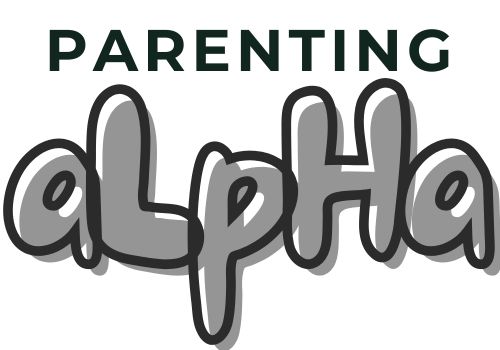By tailoring age appropriate language to match children’s developmental stages, we provide them with the optimal foundation for effective communication, cognitive development, and optimal social interactions.
Yes, language is a remarkable tool that allows children to express their thoughts, connect with others, and navigate the world around them. From the moment they are born, they embark on an incredible journey of language development.
In this discussion, we explore the characteristics of age-appropriate language at different stages of children’s life and understand how it plays a vital role in shaping their linguistic abilities, in addition to overall growth.
What is Age-Appropriate Language?

Age-appropriate language refers to the use of words, phrases, and concepts that align with a child’s cognitive, emotional, and linguistic development. It takes into account the child’s age, maturity level, and ability to understand and process information.
Just as well, it refers to the use of vocabulary, grammar, and communication style that is suitable for the cognitive and linguistic development of a specific age group.
Here are some tips for using age-appropriate language with children:
- Be aware of the child’s age and development stage. What is appropriate for a 2-year-old is not necessarily appropriate for a 5-year-old.
- Use simple, clear language. Avoid using complex words or phrases that the child may not understand.
- Use concrete language. Talk about things that the child can see, hear, touch, smell, or taste.
- Use positive language. Avoid using negative words or phrases, such as “bad” or “wrong.”
- Be consistent. Use the same words and phrases consistently, so that the child can learn them.
Why is Age Appropriate Language Important in Parenting?
Using age-appropriate language in parenting is crucial for effective communication and the healthy development of children.

Here are some reasons why it is important:
1. Enhances Comprehension and Learning
Children learn and absorb information at different rates as they grow. Age-appropriate language helps simplify complex ideas, making them more accessible and easier to understand. By using vocabulary and concepts that align with their developmental stage, parents can facilitate effective communication and promote learning.
2. Develops Vocabulary:
Children learn language by imitating the words and phrases they hear. Using appropriate language models correct grammar and introduces new vocabulary in a context that children can understand. This helps expand their vocabulary and language skills.
3. Good for Emotional Connection
Using age-appropriate language allows parents to connect with their child on an emotional level. By using words and phrases that resonate with the child’s experiences and feelings, parents can demonstrate empathy, understanding, and support. This emotional connection builds trust and strengthens the parent-child bond.
4. Confidence Building:
When parents use language that matches their child’s age, it demonstrates respect and validation for their developmental stage. Children feel understood and more confident in expressing themselves. This, in turn, promotes positive self-esteem and a willingness to engage in further communication.
5. Fosters Trust and Bonding:
Effective communication is key to building trust and maintaining a strong bond between parents and children. Age-appropriate language fosters a connection, as it ensures that children feel heard, valued, and understood. It creates an open and supportive environment for them to share their thoughts and feelings.
6. Good for Safety and Boundaries:
Using appropriate language helps parents effectively communicate safety rules, boundaries, and expectations to their children. Children can better understand and internalize these messages, promoting their well-being and preventing potential harm.
Practical Examples of Age-Appropriate Language

1. Toddler Stage (1-3 years)
During the toddler stage, children are developing their vocabulary and grasping basic concepts. When communicating with toddlers, parents can use simple words, repetition, and visual cues to enhance understanding.
For example, instead of saying,
“We need to go to the doctor for your check-up,” a parent could say,
“We’re going to see the doctor to make sure you’re healthy and strong.”
2. Early Childhood Stage (4-6 years)
In the early childhood stage, children’s language skills and comprehension abilities expand. Parents can engage in more detailed conversations while still maintaining simplicity.
For instance, when discussing emotions, a parent might say,
“It seems like you’re feeling sad because your friend couldn’t come over to play. Is that how you feel?”
3. Middle Childhood Stage (7-11 years)
As children enter the middle childhood stage, their language skills become more advanced. Parents can introduce more complex ideas and encourage critical thinking.
For example, when explaining the importance of honesty, a parent could say, “Being honest means telling the truth, even when it’s difficult. It helps us build trust with others and creates stronger relationships.”
3. Adolescence (12+ years)
During adolescence, teenagers are capable of understanding abstract concepts and engaging in mature discussions. Parents can use age-appropriate language to discuss sensitive topics such as relationships, peer pressure, and personal values.
For instance, when discussing consent, a parent might say,
“Consent means giving permission and respecting each other’s boundaries. It’s important to always ask for consent and listen to the other person’s response.”
How Parents Can Tailor Language to Developmental Stages

Children go through various developmental stages, each characterized by specific cognitive, emotional, and social milestones. It is essential for parents to adapt their language to suit these stages.
Here are some strategies that can help parents in this process:
1. Create a Language-Rich Environment:
Surround your child with language by talking, singing, and reading to them regularly. Provide opportunities for them to hear and interact with a variety of vocabulary and sentence structures.
2. Respond and Engage:
Respond to your child’s attempts at communication, whether it’s babbling, cooing, or using words. Show interest, listen attentively, and engage in back-and-forth conversations, encouraging them to express themselves.
3. Use Simple and Clear Language:
Adapt your language to match your child’s current developmental level. Use shorter sentences, simple words, and clear enunciation. Speak at a slightly higher level than their current language ability to gradually introduce new vocabulary and sentence structures.
4. Repeat and Expand:
When your child says a word or a simple sentence, repeat it back to them correctly to reinforce the proper pronunciation and grammar. Additionally, expand on what they say by adding a few extra words or describing the situation further. This helps to build their vocabulary and sentence complexity.
5. Encourage & Read Together:
Reading in general and reading aloud to your child exposes them to a variety of words, sentence structures, and narratives. Choose books appropriate for their age and gradually introduce more complex stories as they grow. Ask questions about the story to promote comprehension and critical thinking.
6. Encourage Language Play:
Engage in language play activities such as rhyming games, word puzzles, or storytelling. These activities promote creativity, vocabulary development, and language exploration.
7. Provide a Language-Positive Environment:
Foster a positive and supportive atmosphere for language development. Avoid correcting your child’s language mistakes directly but instead, model correct language usage. Praise their efforts and accomplishments, which boosts their confidence and motivation to communicate.
8. Seek Professional Guidance if Needed:
If you have concerns about your child’s language development or if they are experiencing difficulties, consult a pediatrician or a speech-language pathologist. They can provide appropriate guidance, assessment, and intervention if necessary.
Remember that each child develops at their own pace, so it’s important to be patient and provide consistent support. By tailoring language experiences to their developmental stages, parents can effectively nurture their child’s language skills and promote their overall communication abilities.
Real-Life Scenarios Where Age-Appropriate Language is Used

- Discussing Emotions
Scenario: Your child is upset about not being invited to a birthday party.
Using age-appropriate language, you can say, “I understand that you feel sad because you weren’t invited to the party. It’s okay to feel disappointed, but remember that there will be other opportunities to have fun with your friends.”
- Talking about Sensitive Topics
Scenario: Your child asks about a news event involving a natural disaster.
Using age-appropriate language, you can say, “There was a big storm in another city, and it caused a lot of damage. Many people are working to help those who were affected, and it’s important for us to be grateful for our safety and help others when we can.”
- Explaining Complex Situations
Scenario: Your child wants to understand why their grandparents are getting older and can’t do certain activities anymore.
Using age-appropriate language, you can say, “As people get older, their bodies change, and they may not have as much energy as before. It’s natural for grandparents to need more rest, but they still love spending time with us and sharing stories.”
- Setting Boundaries and Rules
Scenario: Your child wants to play video games late at night.
Using age-appropriate language, you can say, “It’s important to have a good night’s sleep to stay healthy and focused. We have a rule that we don’t play video games after a certain time so that our bodies can rest and recharge.”
Frequently Asked Questions (FAQs)
Q: Can I use advanced vocabulary with my child to accelerate their language development?
A: While it’s important to challenge children’s language skills, it’s crucial to strike a balance. Gradually introduce new words and concepts, ensuring they understand the basics first.
Q: How can age-appropriate language help during discipline or correction?
A: Age-appropriate language helps children understand the reasons behind rules and consequences. It allows parents to explain the impact of their actions without overwhelming them.
Q: Is it okay to simplify complex topics too much?
A: It’s important to strike a balance between simplicity and providing accurate information. Simplifying complex topics doesn’t mean withholding essential details but rather presenting them in a way that children can grasp.
Q: Can age-appropriate language limit a child’s intellectual growth?
A: No, age-appropriate language supports intellectual growth by ensuring children understand concepts at their current stage of development. It provides a solid foundation for further learning.
Q: How can I ensure I am using age-appropriate language effectively?
A: Stay attuned to your child’s responses and adjust your communication accordingly. Observe their comprehension and make adjustments as needed to ensure effective understanding.
The Last Word
In conclusion, age-appropriate language is a powerful tool that parents can use to effectively communicate with their children.
By considering their developmental stage and tailoring our language accordingly, we can nurture strong connections, support their learning, and promote healthy emotional development. Remember, using words that resonate with your child creates a language of love and understanding.





Leave a Reply